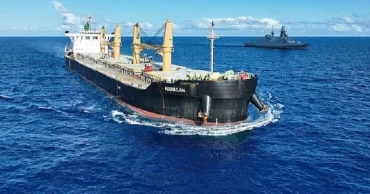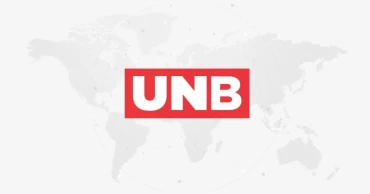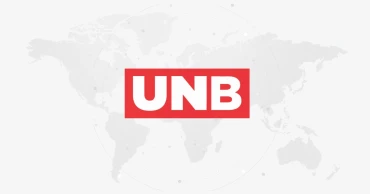UAE
UAE rulers grant royal pardons to 440 Bangladeshi prisoners
The rulers of the United Arab Emirates (UAE) have granted royal pardons to 440 Bangladeshi prisoners, said the UAE Embassy in Dhaka on Wednesday (January 14, 2026).
The royal pardons were granted on the occasion of the 54th UAE National Day (Eid Al Etihad) in 2025, which is observed annually on December 2, commemorating the historic unification of the emirates in 1971 under one flag.
The gesture underscores the UAE leadership’s humanitarian values and commitment to giving those pardoned the chance to rebuild their lives and rejoin their families and communities, said the Embassy.
Read more: UAE President pardons 25 convicted Bangladesh citizens
As part of the Union Day celebrations, UAE leaders pardoned thousands of inmates across the country, marking one of the largest collective clemency initiatives in recent years.
The pardons reflect the UAE’s longstanding tradition of granting mercy on significant national and religious occasions.
The UAE rulers regularly issue royal pardons during events such as Eid holidays and National Day, promoting forgiveness, family reunification, and social reintegration.
The recent pardon initiatives in late 2025 covered thousands of prisoners of various nationalities, including Bangladeshi citizens, offering them an opportunity for a fresh start.
Read more: Disney to build its 7th theme park in UAE
1 month ago
UAE President pardons 25 convicted Bangladesh citizens
President of the United Arab Emirates (UAE) Sheikh Mohamed bin Zayed Al Nahyan has pardoned 25 Bangladeshi citizens who were previously convicted in the UAE.
The pardon was granted following a request from Bangladesh, seeking clemency for Bangladeshi nationals arrested in UAE in connection with the events surrounding the July 2024 and subsequently sentenced by UAE courts.
Read more: Disney to build its 7th theme park in UAE
All 25 individuals have been pardoned and returned to Bangladesh, said the UAE Embassy in Dhaka on Sunday, noting that this act of clemency once again reflects the generosity of Sheikh Mohamed bin Zayed Al Nahyan.
The expatriate Bangladeshis were detained at different times in the UAE during the July 2024 uprising in Bangladesh.
This humanitarian gesture reflects the UAE leadership’s commitment to compassion, tolerance and justice, as well as the deep-rooted, brotherly relations between the United Arab Emirates and Bangladesh, the Embassy said.
Read more: UAE President, PM mourn death of Khaleda Zia
Earlier, the President had also pardoned Bangladeshi expatriates several times who were serving sentences for staging a rare protest in the UAE, underscoring the UAE’s humanitarian approach.
1 month ago
Disney to build its 7th theme park in UAE
Disney will build its seventh theme park, this one in the United Arab Emirates, the entertainment company said Wednesday.
The waterfront resort will be built on Yas Island on the outskirts of Abu Dhabi city, already home to Formula One’s Abu Dhabi Grand Prix, the Ferrari and Warner Bros. amusement parks, SeaWorld and a waterpark, AP reports.
Disney and Miral, the Abu Dhabi developer overseeing the project, hope to capitalize on the 120 million airline passengers that travel through Abu Dhabi and Dubai each year.
While long viewed as more buttoned up than the beaches and raucous nightlife in neighboring Dubai, Abu Dhabi also is home to the Louvre Abu Dhabi and there are more museums currently under construction.
Disney Bets Big on Live-Action Remakes of Lilo & Stitch and Moana
The theme park announcement is being made ahead of a visit by US President Donald Trump to the region next week. Trump has promised a series of business deals with Saudi Arabia, Qatar and the UAE.
The theme park will be built and operated by Miral, but Disney will handle the design and development. Disney will also license its intellectual property and provide development and management services, according to a regulatory filing.
The California company will not be providing any capital for the project. It will earn royalties based on the resort’s revenues. It will also earn service fees.
Miral has been involved in the development of almost all of the entertainment complexes built on the island.
A projected opening date has not been announced.
Shares of Disney, which also reported second-quarter financial results on Wednesday that beat Wall Street's expectations, jumped more than 9% in morning trading.
9 months ago
UAE expedites visa Issuance for Bangladeshis following talks
The United Arab Emirates (UAE) has made significant progress in resuming visa issuance for Bangladeshi nationals, following “sustained diplomatic engagement” between the two countries, officials said.
Meanwhile, a high-level UAE cabinet delegation is scheduled to visit Bangladesh later this month to further advance bilateral cooperation.
UAE Ambassador to Bangladesh Abdulla Ali ALHmoudi Sunday called on the Chief Adviser’s Special Envoy Lutfey Siddiqi at his office and discussed issues of mutual interest.
Ambassador ALHmoudi informed the Special Envoy that the UAE Embassy in Dhaka is now issuing between 30 and 50 visit visas daily.
Additionally, bulk visa processing for business delegations has been expedited, enhancing people-to-people and commercial exchanges.
In a major development, the UAE Ministry of Human Resources has reactivated its online system for skilled employment visas, said Chief Adviser’s Deputy Press Secretary Abul Kalam Azad.
During the meeting, the Ambassador expressed appreciation for Siddiqi’s active engagement with the UAE government in recent weeks, which included over half a dozen ministerial visits focusing on issues ranging from visa facilitation to investment cooperation.
MoFA's FB page hacking: All urged not to engage with posts
Visas for professionals such as marketing managers and hotel staff have been issued in recent weeks. Furthermore, 500 visas for security guards have already been granted, with another 1,000 approved and set for issuance shortly.
It is expected that the UAE will progressively ease visa restrictions further over time.
The Ambassador also assured continued flexibility in considering humanitarian and compassionate cases flagged by the Bangladeshi authorities.
Special Envoy Siddiqi welcomed the developments and thanked Ambassador ALHmoudi for his openness and support.
He also expressed gratitude for the launch of negotiations on a Comprehensive Economic Partnership Agreement (CEPA), noting that the two sides have already agreed on terms of reference.
9 months ago
BEPZA signs deal to set up machinery manufacturing industry in EZ
The Bangladesh Export Processing Zones Authority (BEPZA) has signed a lease agreement with Lee’s Tobacco Machinery Company Limited, a UAE and Singapore-owned company, a move to diversify the range of products.
This agreement marks the establishment of the first machinery manufacturing industry in the BEPZA Economic Zone (EZ), further enhancing the zone’s diverse product line, according to a press release.
Md. Ashraful Kabir, Member, investment promotion of BEPZA, and Li Meng, Chairman of Lee’s Tobacco Machinery Company Limited, signed an agreement in presence of BEPZA Executive Chairman, Major General Abul Kalam Mohammad Ziaur Rahman ndc, psc.
The company plans to invest US$ 8.32 million in the project, which will create employment opportunities for 92 Bangladeshi nationals. The factory will produce tobacco and cigarette machinery, a new and diversified product to be manufactured in the EPZs and EZs under BEPZA.
Speaking at the signing ceremony, the Chairman of Lee’s Tobacco Machinery Li Meng, expressed his commitment to focusing on BEPZA’s potential and encouraging other investors to consider the EPZs and EZs.
He assured BEPZA of his company’s dedication to transferring specialized knowledge and expertise in machinery production to Bangladeshi workers.
BEPZA attracted 29 percent of total FDI last fiscal year, says its Chairman
“It will help build a skilled workforce capable of producing machinery that is new to the country’s industrial landscape,” he added.
Li also shared plans to establish two more industries in the BEPZA EZ in the near future, further enhancing the zone’s industrial capabilities.
BEPZA Executive Chairman Ziaur Rahman thanked Lee’s Tobacco Machinery Company Limited for choosing BEPZA’s EZ as their investment destination and assured them of all necessary support to ensure smooth operations.
1 year ago
UAE invites Dr Yunus to attend World Governments Summit in Dubai
The United Arab Emirates (UAE) has invited Chief Adviser Professor Muhammad Yunus to attend the World Governments Summit 2025 which will be held in Dubai in February.
Chairperson of Dubai Culture and Arts Authority, UAE Sheikha Latifa Bint Mohammed bin Rashid Al Maktoum extended the invitation to Dr Yunus during a bilateral meeting held on the sidelines of the World Economic Forum annual meeting in the Swiss city, CA's Deputy Press Secretary Abul Kalam Azad Majumder told UNB.
CA Dr Yunus begins hectic 2nd day in Davos with 14 meetings lined up
The World Governments Summit is scheduled to take place from February 11 to 13 this year.
Dr Yunus has also been requested to take three young advisers of the interim government to accompany him during the Summit so that they can share with the global audience how they led the July uprising against fallen Sheikh Hasina.
Both sides highlighted the potential of young people in leading the world.
"We want to build a new Bangladesh," Dr Yunus said.
1 year ago
Govt cancels appointments of US, Russia, UAE ambassadors
The government has cancelled the contractual appointments of three ambassadors posted in the United States, Russia and the United Arab Emirates (UAE).
The Public Administration Ministry issued an order cancelling their appointments (remaining tenure) on Monday.
They are- Bangladesh Ambassador to Russia Kamrul Ahsan, Ambassador to the USA Muhammad Imran and Ambassador to the UAE Mohammed Abu Zafar.
454 government law officers appointed in Ctg, Sylhet
The Ministry of Foreign Affairs will announce names of new ambassadors to these three important missions abroad after completion of the appointment process.
1 year ago
MV Abdullah leaving UAE for Bangladesh today
The Bangladeshi-flagged vessel MV Abdullah, recently liberated from Somali pirates, is scheduled to depart Al-Hamriya Port in the United Arab Emirates for Bangladesh today (April 28, 2024) at noon, officials confirmed.
The vessel, which had been hijacked for 33 days, successfully unloaded 55,000 metric tonnes of coal at Al-Hamriya Port yesterday. The owner, KSRM Group, announced that the vessel and its crew of 23 sailors are expected to arrive at Chattogram Port by mid-May.
Mizanul Islam, a spokesperson for the Chattogram-based KSRM Group, reported that the loading operations were completed yesterday, and the vessel is now ready to embark on its journey back to Bangladesh.
MV Abdullah reaches Dubai’s Al Hamriya Port
MV Abdullah initially anchored at the UAE port on the evening of April 22, following its release from pirate captivity. Distinguished guests including Mohammad Abu Jafar, the Bangladesh Ambassador, and officials from SR Shipping, the vessel's operating company, were present to welcome the crew upon their arrival.
The ship first arrived at the outer anchorage of the port on April 21, following its ordeal which began on March 12 when it was seized by Somali pirates about 600 nautical miles off the Somali coast en route from Mozambique to Dubai.
The pirates took control of the vessel and its crew, holding them until a ransom of Tk 55 crore facilitated their release on the night of April 13.
Family counting days for safe return of MV Abdullah's chief engineer
Following the release, MV Abdullah headed to Al-Hamriya Port under the escort of an EU NAVFOR warship, navigating through approximately 480 nautical miles of high-risk areas along the Somali coast and the Red Sea before reaching the safety of the United Arab Emirates.
This voyage marks a significant step towards recovery after the harrowing pirate attack, with the crew looking forward to a safe return to their homeland.
Previous experience used to rescue MV Abdullah, crew: KSRM
1 year ago
Bangladeshi vessel hijacked by Somali pirates: 11 among 23 crew members from Ctg
Eleven out of the 23 crew members of a Bangladeshi cargo vessel, MV Abdullah, that was hijacked by a group of Somali pirates in the Indian Ocean, are residents of Chattogram.
Earlier on Tuesday, the ship, carrying coal from Mozambique’s Maputo port to Al Hamriyah Port in the UAE, was attacked around noon.
MV Abdullah is owned by SR Shipping Lines – a sister company of Chattogram-based Kabir Steel and Rerolling Mill (KSRM) Group. All crew members are being held hostage by the pirates, said KSRM’s media adviser Mizanul Islam.
Bangladesh cargo vessel hijacked by Somali pirates in Indian Ocean
The crew members are: Captain Mohammad Abdur Rashid, Chief Officer Mohammad Atikullah Khan, Second Officer Mazharul Islam Chowdhury, Third Officer Tarequl Islam, Deck Cadet Sabbir Hossain, Chief Engineer ASM Saiduzzaman, Second Officer Toufiqul Islam, Third Engineer Rokon Uddin, Fourth Engineer Tanvir Ahmed, Engine Cadet Ayub Khan, electrician Ibrahim Khalil, seaman Md Anwarul Haque, seaman Md Asifur Rahman, seaman Sazzad Hossain, seaman Joy Mahmud, seaman Nazmul Haque, seaman Ainul Haque, oiler Mohamamd Shamsuddin, Ali Hossain, fireman Mosharraf Hossain Shakil, chief cook Shafiqul Islam, general steward Nur Uddin, and fitter Saleh Ahmed.
KSRM owns 23 ships – all operating on international routes.
In 2010, one of the ships, ‘MV Zahan Moni’, was hijacked and was later released by Somali pirates after providing ransom.
Read more: 11 crew swim ashore as water enters coal-laden cargo vessel in Pashur River
1 year ago
Bangladesh to import 1.5mn metric tons of crude oil from Saudi Aramco, UAE’s Adnoc
Bangladesh will import 1.5 million (15 lakh) metric ton of crude oil from Saudi Arabia and United Arab Emirates (UAE) for the year 2024.
The Cabinet Committee on Economic Affairs (CCEA) in a virtual meeting, with Finance Minister AHM Mostafa Kamal, in-principle approved a proposal in this regard.
As per proposal of the state-owned Bangladesh Petroleum Corporation (BPC), moved by the Energy and Mineral Resources Division of the Ministry of Power, Energy and Mineral Resources, the crude oil will be imported through direct purchase method (DPM) which means there was no tender or competitive bidding process in selecting the supplier.
Dhaka urges Riyadh to consider crude or refined oil on deferred payment basis
The proposal mentioned that Saudi Aramco and UAE-based Adnoc will supply the total crude petroleum.
While briefing reporters about the outcomes of the Cabinet body's meeting, additional secretary of the Cabinet Division Sayeed Mahbub Khan informed that the cost or price of petroleum was not mentioned in the proposal as it came for in-principal approval.
Bangladesh needs to import about 6.5 million metric ton of petroleum oil annually. Of this, about 1.5 million is crude and the remaining amount is refined petroleum.
Glitch in brand new pipeline halts transfer of crude oil from mother vessel in Maheshkhali
The Cabinet body approved, in-principle, another proposal -- of Bangladesh Hi-Tech Park Authority under the Department of Information and Communication Technology -- to appoint a private company for operation and maintenance work of its “Vision 2041 Smart Tower” in Kawranbazar, Dhaka. The company will operate the building under the "Digital Entrepreneurship and Innovation Eco-System" project after its construction work.
2 years ago



















